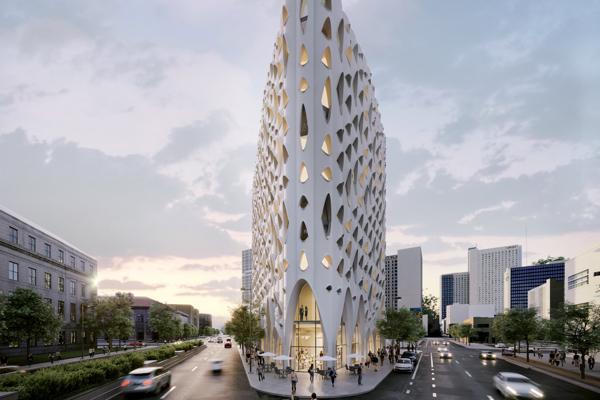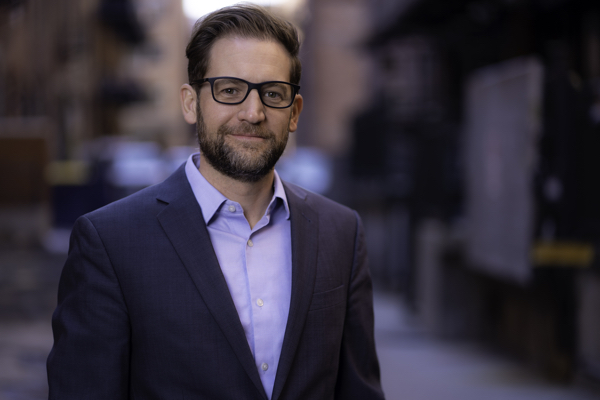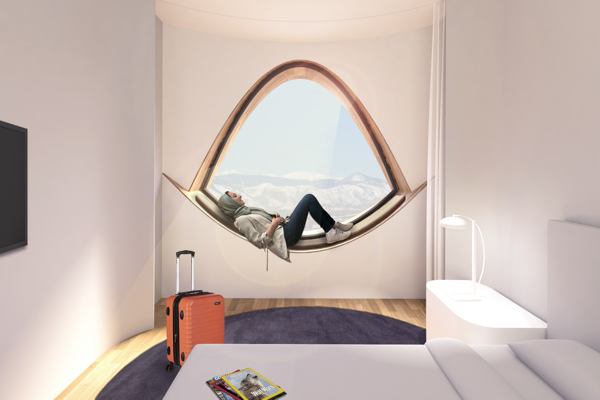Today, HOTELS presents the second installment of a three-part series on how hoteliers are pioneering a new wave of sustainability with technology.
They are experimenting with sustainability initiatives from the concept stage all the way through after opening, with high hopes that what they achieve can serve as green models for future hotels.
Contributed by Juliana Shallcross
In Part 1, we featured Hotel Marcel in New Haven, Connecticut, which opened in April with the entire hotel powered by electricity, relying on solar panels and a renewable energy micro-grid consisting of solar-charged batteries. It even has an old airport shuttle van converted into an electrical vehicle.

In Part 2, we feature the forthcoming Populus Hotel in Denver, Colorado.
When the first gas station in Colorado opened at 14th and Colfax Streets in Denver in 1912, cars lined up to fill their tanks for 19 cents a gallon. Next year, when the eco-minded Populus Hotel opens on that very spot, it won’t even have a parking garage, encouraging guests to walk instead, bike, or use rideshare to arrive at the hotel.
Populus’ environmental aim is a lofty, almost unheard-of endeavor – sequestering the hotel’s embodied carbon and its operational carbon output. Nixing a parking garage will save tons of both and it’s just one of the ways the hotel hopes to achieve a carbon-positive status, that is, its carbon output will be offset through other means. (This is also referred to as being carbon negative.)
“You can’t build a building with no carbon footprint,” said Jon Buerge, chief development officer at Urban Villages and the developer of Populus. “So how do we sequester the same amount that we emit? How do we leave the world a better place than we found it in developing this project?”
The hotel has been hyper-conscious of its embodied carbon, the amount of carbon that is emitted when constructing and furnishing a hotel, using low-carbon concrete mixes and identifying the carbon output of all its interior materials. The reason for meticulous carbon tracking is so they can determine exactly how much carbon needs to be sequestered.

But rather than buying carbon credits or offsets, Populus is forming partnerships with a mix of publicly held and privately-owned forests in the Mountain West region to plant trees that won’t be sold back to the timber industry at a later point.
“What we’ve realized is that a lot of times those carbon credits are not very authentic,” Buerge said, describing how some carbon credits or offsets don’t actually sequester carbon. “We want to be very real about this, and find a group that can actually dedicate land, it might be in forest service areas, where we say, we’re going to plant these 5,000 trees, and they’re never going to get torn down.”
The carbon tracking will continue after opening, too. “Once we turn on the lights, once people start eating at the restaurant, once we start operating the building, we are going to be constantly calculating our carbon footprint,” Buerge said, adding that even menu items will denote its carbon output so guests can see the impact of their dining choices. The hotel will also display maps of where the forests are so guests can see where the tree planting is happening.

Populus eventually plans on publishing a white paper on its carbon sequestering efforts to show other developers and investors how it’s being done, warts and all. “We’re going to make mistakes,” Buerge said. “It’s the first time doing this, and we know we’re not going to get it right. But we want to publish it and show everybody what we did, why we did it, and how to learn from it.”
When it comes to financials, Buerge said Populus investors still require market rate returns comparable to other new hotel developments which align with Urban Villages’ mission to create “environmentally and socially transformative projects” without compromising ROI. In the long view, Buerge said projects like Populus will financially outperform the competition, doing not just good business but good for the planet.
“Real estate has to be a part of the solution,” he said. “Our thesis has always been that you can build and manage buildings to be much better for the planet without sacrificing your return on investment.”
